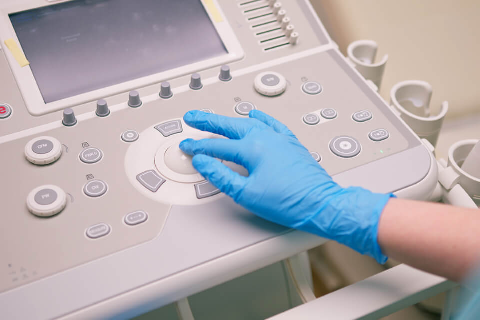- Home >
- Birth Injury Claims >
- Ectopic Pregnancy Negligence Claims
Not every pregnancy progresses as planned. An ectopic pregnancy is one example of this. While this can be devastating on its own, a failure to diagnose or properly treat this condition can have life-changing consequences for a patient and their family.
If you or someone you love endured a misdiagnosed ectopic pregnancy, or suffered a preventable rupture, we can help you recover compensation, find answers and get justice. With over 30 years of specialist experience, our medical negligence experts provide sensitive support and advice to achieve the right outcome.

Do you have an ectopic pregnancy negligence claim?
An ectopic pregnancy is an upsetting experience for any expectant mother, as the baby cannot develop or survive. However, if this is misdiagnosed or not treated promptly, a rupture can cause life-threatening internal bleeding, putting the mother’s health in jeopardy.
If you, your partner or a loved one endured this, you deserve answers. Our compassionate medical negligence solicitors work tirelessly to investigate what happened and reach a settlement that helps you move on.

The specialist ectopic pregnancy claims solicitors for Essex & East Anglia
Our decades of experience in all forms of misdiagnosis claims make us the team you can rely on to secure the compensation and answers you need to move forward.
Since 1993, Gadsby Wicks has recovered millions in compensation for our clients across Essex & East Anglia. Working on a strict “no win, no fee” basis and settling 96% of our cases out of court, trust our experts to guide your claim from start to finish with zero financial risk and absolute peace of mind.
What does our ectopic pregnancy claim process look like?

A free initial consultation
Call us, request a callback or complete our online form and we’ll assess if you have a valid medical negligence claim.

Funding your claim
Discover the ways we can fund your claim without you paying a penny at any stage of the process.

Investigating evidence
We gather medical records, witness statements and more to learn what happened to you and prove your claim.

Instructing independent medical experts
We work with impartial, experienced medical experts to establish whether your injuries were due to substandard medical care.

Valuing your claim
We assess your health and financial losses to accurately estimate how much compensation your claim is worth.

Presenting your case
We contact the Defendants and the Courts on your behalf to set out your allegations and receive a response.

Negotiating a settlement
We work to achieve a fair settlement for you outside the courtroom – this is how 96% of our cases end.

Preparing for Trial
If we must proceed to Trial, we fully prepare you for what to expect so you receive the right result in court.
FAQs about ectopic pregnancy negligence claims
What is an ectopic pregnancy?
An ectopic pregnancy is when an egg is fertilised outside of the uterus, most commonly taking place inside a fallopian tube. Although the egg is fertilised and will, for a short time, grow as a typical embryo would, an ectopic pregnancy cannot continue to grow outside of the uterus.
In the UK, an ectopic pregnancy occurs in around 1 in every 90 pregnancies. This is around 11,000 pregnancies a year.
It is not often clear what the cause of an ectopic pregnancy is. However, certain risk factors make the condition more likely, including:
- A previous ectopic pregnancy
- Pelvic Inflammatory Disease (PID) – inflammation of the reproductive system, often caused by an STI
- Previous surgery on fallopian tubes
- Fertility treatments, such as IVF
- Pregnancy despite the use of an IUD or IUS for contraception
- Smoking
- Being aged 35 or older
The biggest risk of an ectopic pregnancy is if the embryo grows to a size where it is simply too big for the fallopian tube. This can cause a tear or rupture that leads to significant internal bleeding, which can affect the expectant mother’s fertility or place her life at risk.
How is an ectopic pregnancy diagnosed?
Symptoms of an ectopic pregnancy tend to show within the 4th and 12th week of pregnancy, and can include:
- Missed periods or other signs of pregnancy
- Lower stomach pain
- Severe discomfort or pain in the abdomen
- Vaginal bleeding or brown, watery discharge
- Discomfort while urinating or defecating
- Pain in the tip of your shoulder
If an ectopic pregnancy is suspected, it can be diagnosed in several ways:
- Taking a pregnancy test
- A transvaginal ultrasound scan
- Blood tests to locate the Human Chorionic Gonadotropin (HCG) pregnancy hormone (done 48 hours apart)
- Performing a laparoscopy (keyhole surgery) to examine the womb and fallopian tubes directly
Symptoms of a ruptured ectopic pregnancy are more extreme and, if identified, should lead to immediate surgery. These symptoms include:
- Sharp, sudden and intense pains in the lower abdomen
- Feeling dizzy or fainting
- Nausea
- Looking very pale
- Signs of peritonitis (abdominal rebound tenderness and guarding)
What are examples of ectopic pregnancy negligence?
In most circumstances, an ectopic pregnancy is diagnosed early and treated promptly, with treatment options including expectant management, medication or surgery.
However, there are instances where negligent care by medical professionals can allow an ectopic pregnancy to reach a dangerous stage and even rupture, placing a patient’s health at serious risk. Examples of ectopic pregnancy negligence include:
- Misinterpreting a pregnancy scan, such as misreading the scan as a miscarriage or a normal pregnancy
- Failure to diagnose ectopic pregnancy due to misinterpreting symptoms, diagnosing conditions such as a miscarriage, urinary tract infection or diverticulitis
- Delayed treatment of an ectopic pregnancy, resulting in more invasive surgical treatment
- Mistakes made during surgery to remove the egg and fallopian tube
- Incomplete surgery
- Improper management post-surgery
If you believe you or someone you love received negligent treatment for your ectopic pregnancy, resulting in a rupture or another negative outcome, start your medical negligence claim with Gadsby Wicks.
What are the consequences of a ruptured ectopic pregnancy?
A ruptured ectopic pregnancy is not only very painful and traumatic, but there is also a risk of severe blood loss and developing an infection like sepsis, which can be fatal.
Misdiagnosing an ectopic pregnancy for one of several symptom-sharing conditions like a miscarriage or appendicitis, can increase the chance of a rupture occurring.
Once an ectopic pregnancy ruptures, surgery is the only possible treatment. This not only carries the greater risks of open surgery and use of general anaesthetic, but can also result in:
- Surgery leaving a sizeable scar on the patient
- Losing a fallopian tube that may have been saved by medication, affecting a woman’s fertility
- The incorrect fallopian tube being removed, which may leave the patient infertile
- Longer time off work and loss of earnings as compared to treatment with methotrexate or less invasive keyhole surgery
How do I prove negligence in ectopic pregnancy cases?
Proving you have a successful claim for ectopic pregnancy negligence requires you to answer three key questions:
- Did a healthcare professional breach their duty of care towards you?
- Did you suffer any financial losses, injuries or pain?
- Was the breach of duty directly responsible for your pain and suffering?
Your clinical negligence claim must satisfy all three of these criteria to be considered valid. As medical negligence solicitors, we investigate all available evidence and work with independent medical experts to prove your claim is legitimate, allowing you to pursue the compensation and justice you deserve.
Want to know more? Get in touch with our team to discuss your situation.
Who is eligible to make a claim for ectopic pregnancy negligence?
Patients who suffered harm due to misdiagnosis or mismanagement of an ectopic pregnancy can file a claim. Family members and dependents can also make a medical negligence claim if the negligence sadly caused the claimant’s death.
Contact our expert ectopic pregnancy claims solicitors
If you, your partner or a loved one suffered due to a misdiagnosed or mistreated ectopic pregnancy, speak to our team about your options. We are here to listen and advise you on your next steps.

Lexcel accredited medical negligence claims solicitors
We are proud to be a Lexcel-accredited practice. The accreditation is a mark of quality and comes directly from the Law Society.
A recent assessment described us as a “Centre of Excellence” and we continue to operate to the highest standards across all main areas of our field. These include client care, case management, financial management, structure and strategy, people management, risk management, information management and file management.




Industry Recognised

